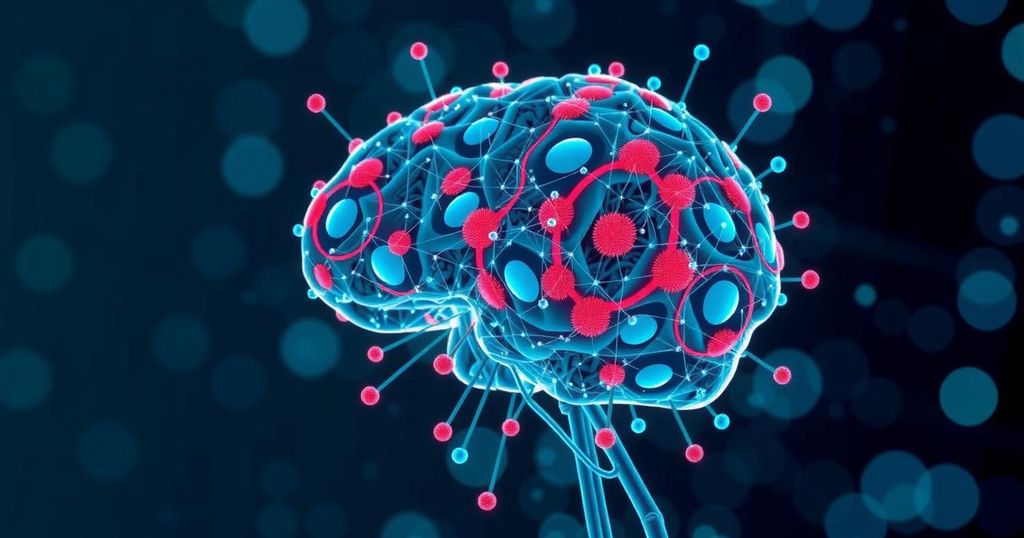Revolutionizing Healthcare: The Transformative Role of Artificial Intelligence
Artificial intelligence is transforming healthcare by enhancing diagnostic accuracy and treatment processes. This innovative technology helps identify complex diseases, streamlines operations, and personalizes patient care. However, it also introduces challenges around ethical practices and data privacy. The integration of AI should support healthcare professionals, ultimately leading to improved patient outcomes and more efficient healthcare delivery.
In the sweeping landscape of modern medicine, artificial intelligence (AI) emerges as a beacon of hope, illuminating the path toward more effective healthcare solutions. This groundbreaking technology enhances physicians’ capabilities, enabling them to diagnose and treat ailments with newfound precision. By mimicking human intelligence, AI brings clarity to healthcare’s most complex challenges, offering tools that not only identify diseases but also streamline processes and personalize patient care.
AI serves as a catalyst for change, meticulously analyzing vast datasets to unveil intricate patterns that human eyes may overlook. Imagine an oncologist armed with historical medical data and advanced imaging technologies; AI can unravel the mysteries of cancer by mapping tumors and guiding treatments with pinpoint accuracy. The result? A revolution in patient care that transforms treatment strategies and outcomes.
Yet, this brave new world is not without its hurdles. Integrating AI into healthcare systems demands a keen awareness of ethical concerns, the paramount importance of patient data privacy, and the elimination of biases in algorithmic predictions. AI, while powerful, should work alongside dedicated healthcare professionals, enhancing their expertise rather than overshadowing it. Continuous research into its ethical applications ensures that AI serves humanity’s best interests.
The impact of AI on medical imaging cannot be overstated. Advanced algorithms excel in scanning X-rays, MRIs, and CT scans, detecting early-stage diseases that often evade human observation. Picture a radiologist with the support of AI, capable of reducing diagnostic errors caused by human fatigue or distraction, ushering in a new era of accuracy and trust in medical assessments.
AI’s integration into healthcare heralds a future where diagnoses are quicker, treatments are tailored to individual patients, and overall costs are reduced. However, as we stand on this precipice of innovation, it is imperative that AI complements rather than replaces human expertise. Adequate oversight and rigorous testing are essential to uphold the integrity of healthcare practices. By harnessing AI responsibly, we can truly revolutionize the healthcare landscape, paving the way for improved patient outcomes across the globe.
The rapid evolution of science and technology in recent years has opened new avenues for artificial intelligence (AI) to permeate various sectors, with healthcare being a primary beneficiary. By enhancing the capabilities of healthcare professionals, AI is making strides in diagnostic accuracy and treatment efficacy. With robust data processing and pattern recognition capabilities, AI can analyze extensive medical histories and imaging results, thus refining the treatment process. However, alongside its remarkable advantages, the integration of AI in healthcare continues to pose significant ethical and practical challenges that must be addressed responsibly.
In conclusion, the integration of artificial intelligence into healthcare is poised to redefine how medical professionals diagnose, treat, and understand illnesses. While the potential for faster, more personalized care is immense, it is crucial to maintain human oversight and address ethical considerations. By combining the brilliance of AI with human expertise, we can usher in a transformative era that not only advances medical technology but also prioritizes patient well-being and trust. The journey ahead is filled with promise, and with prudent stewardship, we can realize the full potential of AI in healthcare for all.
Original Source: www.nation.com.pk




Post Comment